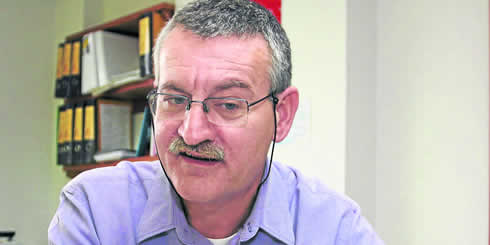Vicenç Fisas – The Nuclear Agreement with Iran, a Boost for Peace in the Middle East
THE NUCLEAR AGREEMENT WITH IRAN, A BOOST FOR PEACE IN THE MIDDLE EAST
Vicenç Fisas
(Director of The School for a Culture of Peace, Universitat Autònoma de Barcelona)
The dialogue with Iran to ensure that its nuclear programme would not have a military dimension has, fortunately, reached a definitive agreement in Geneva. It now falls to the US Congress to ratify this promising agreement within two months. If there is a little flexibility on hand, this will be a historical opportunity to avoid nuclear proliferation in a country that, through the decision of its former president, delirious and bellicose, was headed towards the construction of nuclear weapons. Hasan Rohaní, Iran’s new president, has been firm in his assurances that this objective is no longer being pursued. And he has signed the non-proliferation agreement that, in parallel, will lift all existing sanctions currently in place against Iran. The Iranian people—though not the elite—have suffered enormously over recent years because of the embargo. They desperately wanted an agreement to be reached that would allow them to recover the standards of living that have been lost and might at the same time help to open up the political situation. There was a further obstacle, and no mean one at that, which was that Iran initially refused to accept any inspection of their military installations. But this is a demand that the US, traditionally, has never accepted for itself. As a result, then, it was negotiable, and was therefore resolved. Nor was the lifting of the arms embargo on Iran a difficulty: if certain threats disappear, the resurgence of rearmament is far less probable. At all events, the international community should not react negatively towards the lifting of sanctions since it is absolutely essential that Iran increases the rate of its political reforms and acts as an important ally in the fight against Islamic State (IS).
This is the time to take risks and to facilitate the ratification of the agreement. 40 years ago, it is estimated that there were 40 countries aiming to attain nuclear weapons. To this end, they planned the construction of a substantial number of nuclear power plants; the waste products from these plants, suitably enriched, could then be transformed into nuclear material for military use. Only two countries actually managed to do so (Israel and North Korea). The others, including Spain (Franco also had this particular weakness), have gradually given up on these aspirations through abandoning their nuclear programmes, through diplomacy and through accepting the doctrine of non-proliferation. It is time now to use diplomacy with Iran, to give it facilities and incentives of all kind, for the benefit of the entire international community. And let us also voice clearly and openly, once and for all, the historical contradiction of allowing Israel to have nuclear weapons. For decades, the Middle East has needed regional agreements on non-proliferation and disarmament. But the very opposite has taken place; for many years now, this area has been one of the places in which most conventional arms sales have taken place. Diplomacy simply cannot be faint-hearted at a moment such as this; rather, it has to be courageous, however much pressure Obama may receive from the Republicans and the Jewish lobby. This is the moment in which Saudi Arabia and Israel, the two countries that most fear a possible nuclear armament by Iran, should finally understand that the region as a whole needs global agreements, not simply to avoid nuclear proliferation, but also to avoid any increase in conventional rearmament. With the current potential, all of these countries together have more than sufficient capacity to halt IS, always assuming that they take the political decision to act jointly, and to work together with a number of Muslim countries. Although it may seem unlikely, it is possible to achieve a variety of things at one and the same time; and let us hope that this opportunity includes the Palestinian conflict, too. If Iran completely abandons its military nuclear ambitions, this will ease Israel’s worries so far as its obsession with security is concerned. Simultaneously, it will help with negotiations that, discreetly, Israel is holding with Hamas. In short and taken as a whole, there are sufficient motives here to approach problems not just at an individual level but rather, instead, from a regional geopolitical perspective. Clearly, each issue will call for its own particular way of being handled, but we must not ignore the impact that each issue, if solved, would have on the rest of the region’s problems.
It was enormously positive that the head of European diplomacy, Federica Mogherini, remained in Vienna jointly with US Secretary of State, John Kerry—who spent 18 days in a row in the hotel—and with the Iranian negotiator and Foreign Minister, Mohamad Yavad Zarif. This is exactly what was needed: a commitment to stay at the negotiation table until an agreement that satisfied all parties could be hammered out, an agreement in which no-one lost and everyone gained, and which allowed the urgent lifting of sanctions against Iran. In this hostile world, it is diplomacy that needs to show that its function is to resolve major conflicts. And with this new boost, diplomacy also needs to show that it has the courage to deal with the rest of the problems in the region, too, as and when necessary and with absolute constancy.

